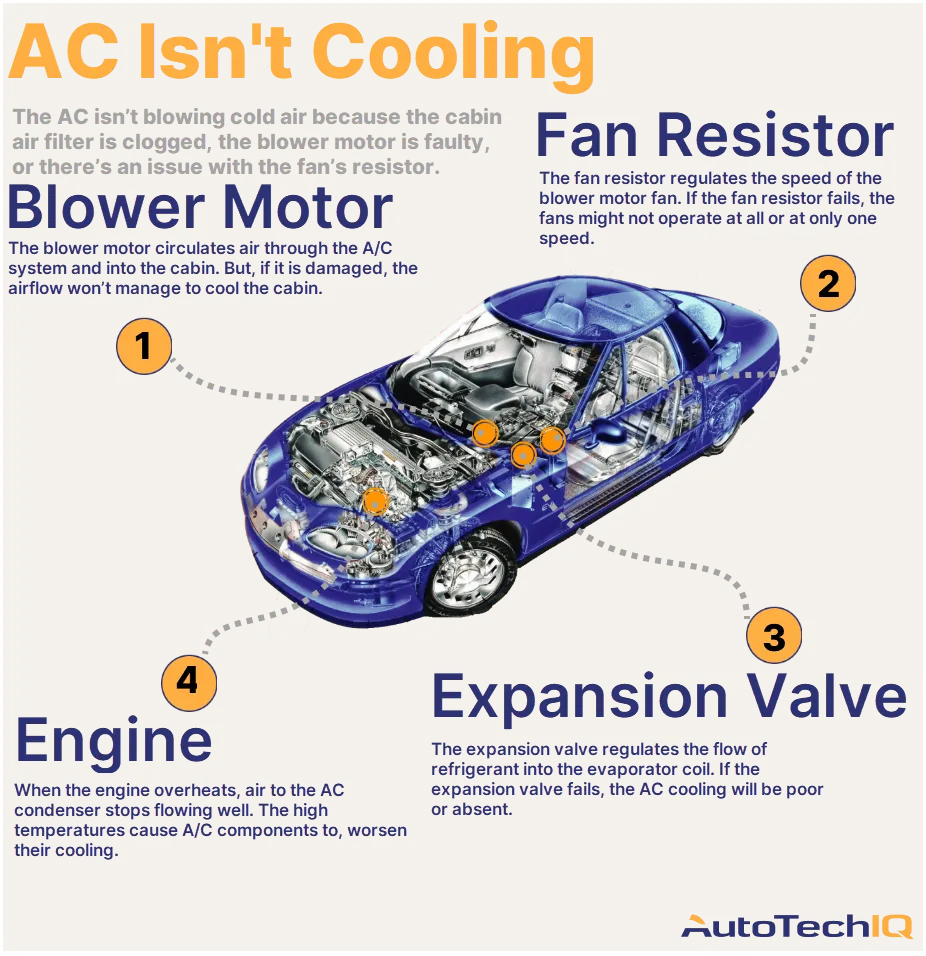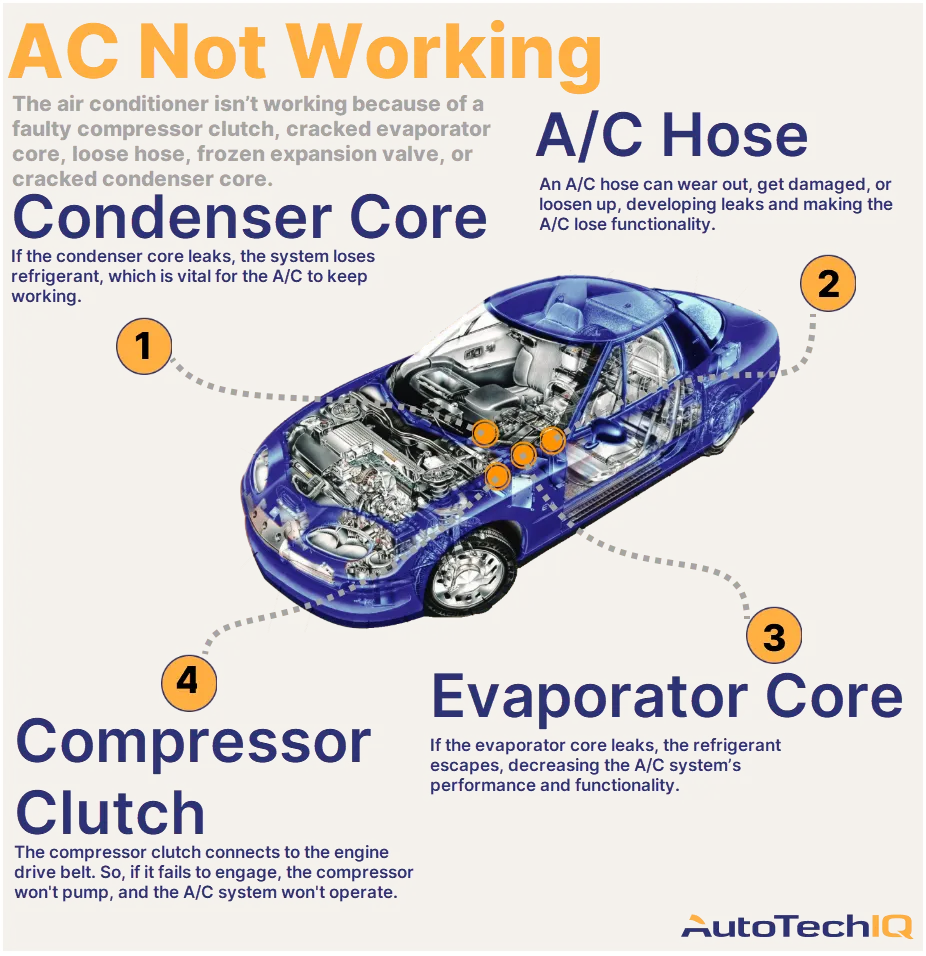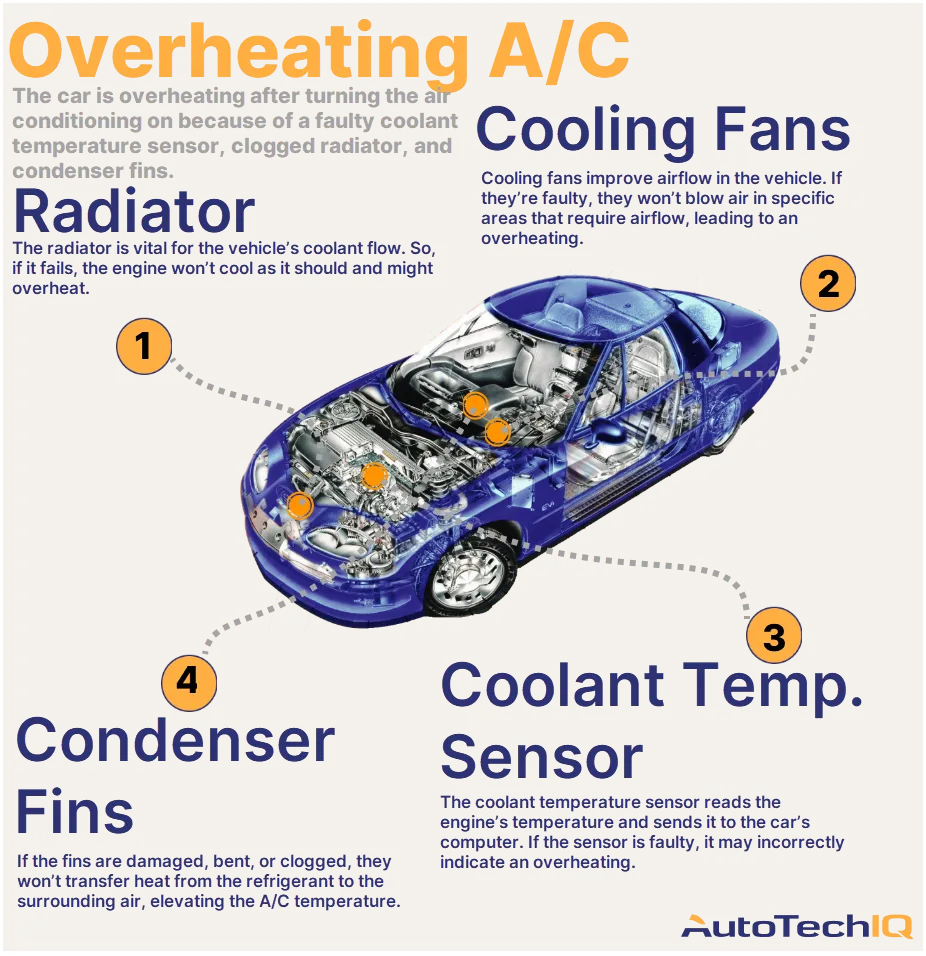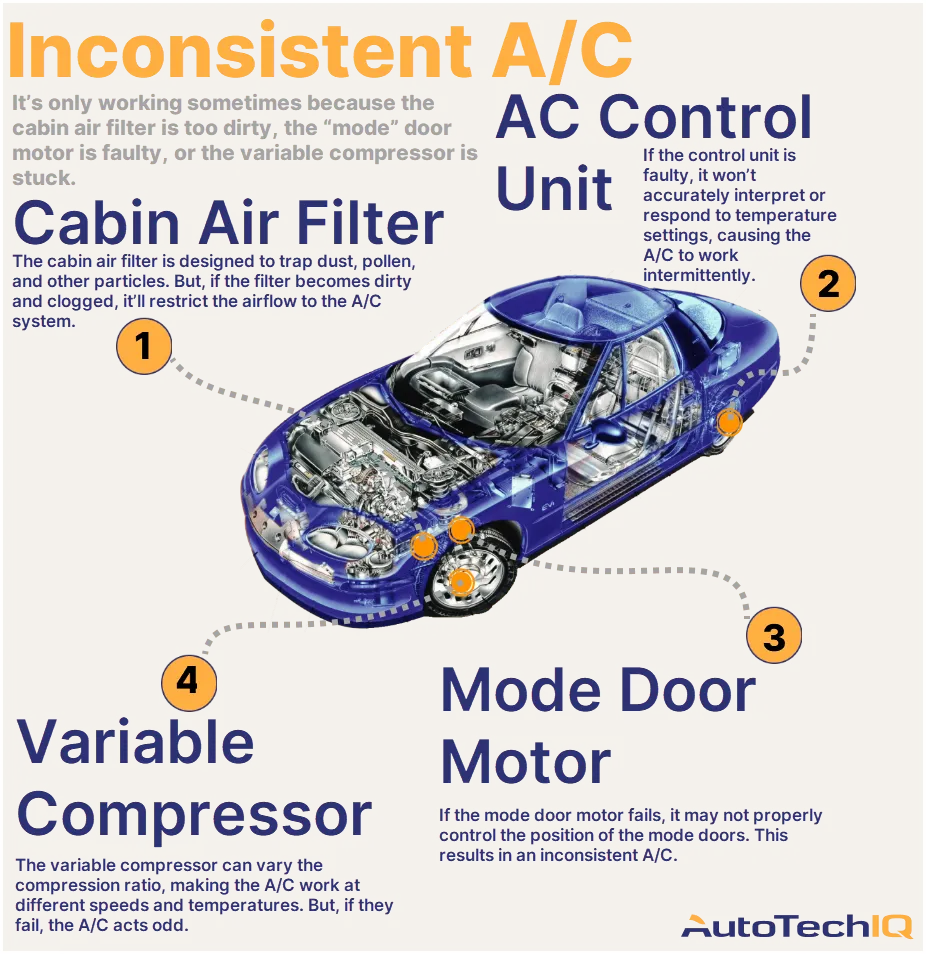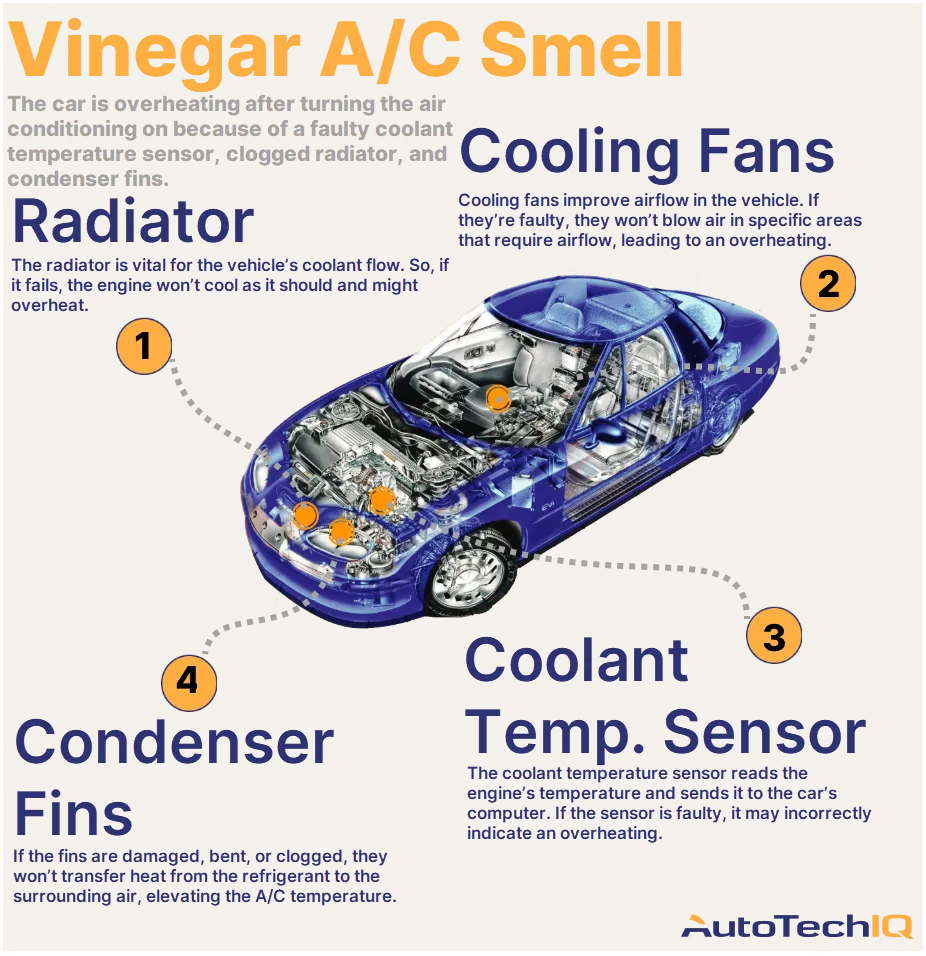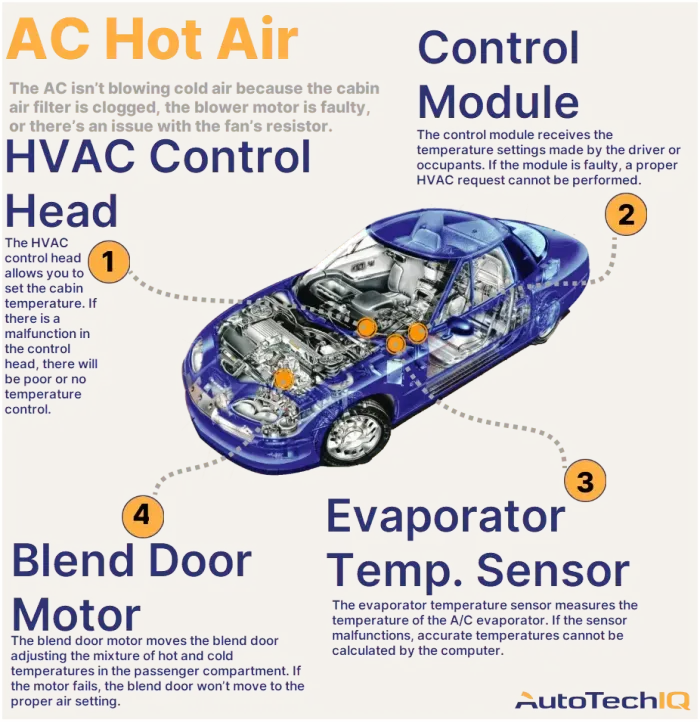
Is Your Car's AC Only Blowing Hot Air?
The air conditioner is blowing hot air because of sensor issues in the evaporator and ambient air temperatures. However, it can also be a failure in the blend door motor, compressor relay, or HVAC(Heating, Ventilation, and Air Conditioning) control head.
Is your car feeling more like a sauna? If so, don't sweat it - try to find out what's wrong first. Plus, when your car air conditioner system starts blowing warm air, it's essential to address it immediately. Not only can a malfunctioning AC be a real drag on your comfort, but it can also be a safety hazard if unchecked.
Watch out: Don't let the situation get any hotter than it needs to be. Instead, ensure your vehicle stays in peak condition, keeping you cool and collected on the road. Remember - a minor issue can quickly snowball into a major headache if left unaddressed. So, avoid future troubles and enjoy a worry-free ride by investigating earlier.

